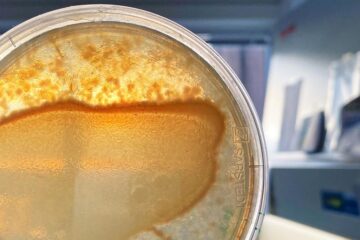Research into happiness is among the winners at European science awards

Ms Corrado received one of five „Marie Curie Excellence Awards“, which recognise excellent researchers who have participated in the EU's researcher exchange programme. Awards were also given recognising excellence in multinational research teams and in science communication.
The winners were selected by three separate Grand Juries, one for each category, composed of leading figures from European and international science. They share an award fund of almost €2m.
Janez Potoènik, European Commissioner for Science and Research, who presented the awards, said „These awards represent the best that Europe has to offer. They honour qualities that are important for all scientists, researchers, inventors and science communicators – excellence, openness and creativity“.
Other projects honoured at the event included the EPICA project, which has vastly extended our understanding of the Earth's climate over the last 800,000 years; VIRLIS which has advanced the knowledge needed to fight the listeria infection; and SynNanoMotors, developing molecular-sized motors, technology which could have myriad applications in the future. All these projects were awarded the prestigious Descartes Prize for Transnational Collaborative Research.
A documentary on the 96% of our universe that could be missing was one of 3 recipients of the Science Communication Prize, the others being the science communicator Jean-Pierre Luminet and writer Delphine Grinberg .
Alongside Luisa Corrado, other recipients of the Marie Curie Excellence award covered issues as diverse as the roles of genes in cancers, ultra-thin carbon films for use in consumer electronics, dark energy and the role of small molecules in the body's immune response.
Media Contact
Alle Nachrichten aus der Kategorie: Förderungen Preise
Neueste Beiträge

Das Mikrobiom verändert sich dynamisch und begünstigt wichtige Funktionen für den Wirt
Ein interdisziplinäres Forschungsteam des Kieler SFB 1182 untersucht am Beispiel von Fadenwürmern, welche Prozesse die Zusammensetzung des Mikrobioms in Wirtslebewesen steuern. Alle vielzelligen Lebewesen – von den einfachsten tierischen und…

Wasser im Boden – genaue Daten für Landwirtschaft und Klimaforschung
Die PTB präsentiert auf der Woche der Umwelt, wie sich die Bodenfeuchte mithilfe von Neutronenstrahlung messen lässt. Die Bodenfeuchte hat nicht nur Auswirkungen auf die Landwirtschaft, sondern ist als Teil…

Bioreaktor- und Kryotechnologien für bessere Wirkstofftests mit humanen Zellkulturen
Medizinische Wirkstoffforschung… Viele Neuentwicklungen von medizinischen Wirkstoffen scheitern, weil trotz erfolgreicher Labortests mit Zellkulturen starke Nebenwirkungen bei Probanden auftreten. Dies kann passieren, wenn zum Beispiel die verwendeten Zellen aus tierischem…





















